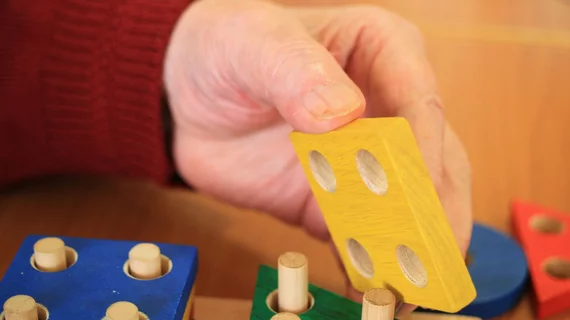Deep learning classifies Alzheimer’s for personalized diagnosis, risk prediction
An AI algorithm has slightly outperformed neurologists at identifying or ruling out Alzheimer’s disease from MRI brain scans combined with demographic information and neuropsychological test results.
Developed by researchers at Boston University, the novel deep learning model is described in an open-access study running in Brain.
In internal coverage of the science published by the school, computational biomedicine specialist Vijaya Kolachalama, PhD, and colleagues suggest the study results show the field is closing in on the ability to predict Alzheimer’s risk at the point of care.
“If we have accurate tools to predict the risk of Alzheimer’s disease that are readily available and can use routinely available data such as a brain MRI scan, [the technology] will have the potential to assist clinical practice, especially in memory clinics.”

